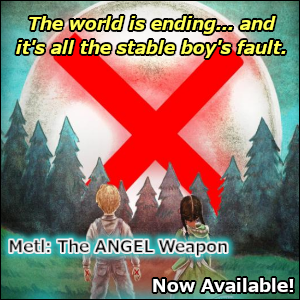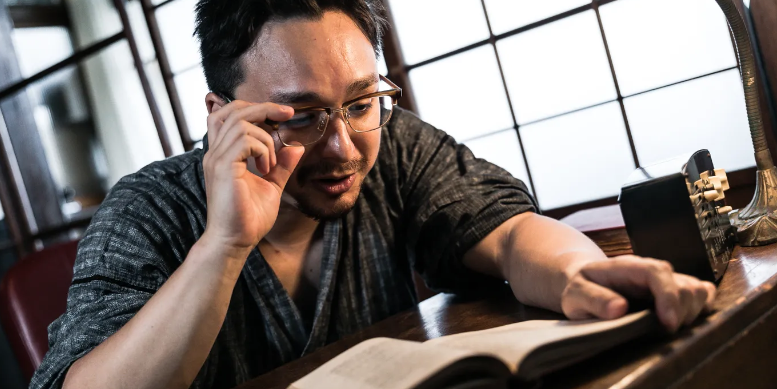Think research is boring?
WRONG! Research is awesome and necessary for every book out there.
Let’s go over some research tips then practice by interviewing… one of YOU live on stream!
During the last stream, a subscriber requested that we go over how to do research for a story.
How to Do Research for a Story
- No matter what kind of story you write, at some point you’re going to need to do research
- For example, in my book Metl, I had to research the limits and plausibility of life/tools without metal, the relative sizes of astronomical bodies, and even the effects of injury/infection on horses rear ends
- And that’s just scientific stuff. If you’re writing a story about groups/types of people you’re not already intimately familiar with (ie: minority groups, disabled people, lawyers, anything!) then you’re going to have to do research too
- So let’s quickly go over why you might conduct research, how to do it, what to take away from it, and then practice it together!
Why Do Research?
There are two main reasons to do research for your story:
- To make your story more accurate
- To make your story feel real
- If you’re writing historical/contemporary fiction, then (1) is very important, and if you’re writing fantasy/sci-fi, then (2) is very important, but the best stories strive to do both well
- For example, in 11/22/63 the 1950s clothes/speech/food details are accurate and make it feel real, and in Leviathan Wakes the Epstein Drive feels real because it’s based in accurate science
- And every kind of story has human characters, with personalities you can make more accurate/feel more real by interviewing people who are different from you
- All these details are what bring your story to life, they’re what people love/remember about their favorite stories, and you want to make sure your story has them too
- Some people may worry that by doing research, you’re hurting your story, since it won’t be *yours* anymore and will become *tainted* by other people… but that’s a bunch of crap
- It’s the same line of thinking for people who don’t want to read books because they think it will taint their “author’s voice”
- The only thing that will happen when you do research is you’ll get a ton of awesome ideas/inspiration for your story, which you can use however YOU want to
How To Do Research?
There are three main types of research: primary, secondary and tertiary
- Primary research uses primary sources: statements/writings from people who directly experienced something, or you interviewing them directly (ie: someone whose house was destroyed by a tornado)
- Secondary research uses secondary sources: compilations of primary sources (ie: a newspaper article about people whose houses were destroyed by a tornado)
- Tertiary research uses tertiary sources: compilations of secondary sources (ie: a Wikipedia article that links to many articles/stories about people’s houses destroyed by tornadoes)
– Tertiary/secondary sources are fine starting places, but you want to make sure you get some primary sources for sure
– The reason for that is because when you’re writing a story, you have to get inside the head of a character, and not only make their experience accurate, but also feel real
– Wikipedia/newspaper articles are fine for accuracy, but they do nothing to make a character feel real — to give the little details of their lives/experience that turn them into a human being
- For primary sources, a good place to start is interviews that other people have already done: you can search YouTube, Google for blogs, or check subreddits for certain communities
- For your own interviews, depending on what kind of person you’re looking for, there are lots of places to find people: subreddits, Googling companies/organizations then e-mailing people, or even your own friends/family connections
- It may be scary to ask someone if you can interview them, but in my experience, people *love* talking about themselves, and as long as your questions are genuine, you won’t offend them
| Middle-Eastern Person |
Transgender Person |
A Literal Woman |
|
| Where to Find | Reddit
Check your area for mosques or cultural groups and contact |
Reddit
Contact a local college’s anthropology dept. |
Reddit
Ask your mom, sister, girlfriend, aunt, grandma! |
| OK Question | Tell me about your family. | Tell me what a typical day looks like for you. | Tell me about your goals in life. |
| NOT OK Question | Why does your country hate America? | How many men have you tricked into kissing you? | What’s your cup size? |
- When interviewing in person, definitely have some questions prepared as a baseline, but ideally you’ll want to ask new questions based on what they say/new things that come up
- The best questions are about that one person, and they’re broad, allowing them to talk about things you don’t even expect
- Do your best to avoid stereotyping and you’ll be fine
- Also be sure to record everything on your phone, so you don’t have to fret about taking tons of notes/forgetting anything
For example, when I did research for a book that had a middle eastern character, a transgender character, and a woman (gasp!), I interviewed all three of them.
The most shocking thing was how much the characters/plot I had planned out beforehand just weren’t based in reality.
For example, I’d planned for my transgender character to undergo gender reassignment surgery to appease their same-sex crush, and the person I spoke to laughed at me, saying that never happens. Instead, they told me a ton of amazing, real details from their life that I used instead.
Same thing with the middle eastern person I interviewed. The character I’d had planned was incredibly bland in comparison to them, and so many of their life details made their way into the story (ie: their first home in NY, paving the way for family, etc.)
Pretty much all the questions I’d brought in advance were useless, but just talking with them like a human being ended up being incredibly fruitful.
What to Take Away from Research?
- Once you’ve done your research, you may have an overwhelming amount of information to work with
- Most of it will not make it into your story, and that’s fine!
- Remember, at the end of the day you’re still writing *your* story, not someone else’s
- You can pick/choose which parts you like the best, and “massage” them together with your own new additions
- Thanks to your research, those additions will be more accurate and also feel more real since they’re based on primary sources
- It can be very easy to fall down the researching rabbit hole, researching forever instead of actually writing your story
- How far you want to go is up to you, but I’d say that as long as you’ve consulted at least one primary source for each plot-significant character/piece of worldbuilding, you’re good
- Of course less than that is fine too, just don’t overdo it
- Lastly, your researched story is still a story, and it still has to go through the regular process of feedback/editing
- If you get feedback that there’s too many details and explanations, that might be a sign you’ve gone overboard on putting your research into your story, and you probably want to tone it down/handwave some smaller things
- If the feedback if that things aren’t accurate/don’t feel real, that might be a sign you’ve neglected to do research in an area
After that we practiced researching by interviewing a random volunteer from chat: EricaDeel.
We pretended like we were writing a story about a woman who has a dog and who discovers she has magical powers.
Being neither a woman nor owning a dog, we asked Erica a bunch of general questions and got tons of incredible answers, lots of which helped to shape the story, many of which had nothing to do with dogs/being a woman.
For example, we learned about how Erica cuddles with her dog in the morning on the couch before they “officially” wake up, her relationships with her siblings, a disastrous wedding, and much more.
So we took those and wrote the beginning of a story, combining our original ideas with some influence from what we learned from Erica.
Here’s what we wrote:
Jingle jingle.
Halfway between awake and sleep, the sound of little iron bells clanging outside my door pries my eyes open. Ah, he’s here.
Jingle jingle.
Louder this time. I can feel the sleepiness draining out of me. To prepare for his arrival, I pull the blankets down to my waist.
Jingle jingle!
The door creaks open and he’s finally here. As usual I can’t see him, only hear him. The clacking of his claws against the floor. Coming closer.
Until he jumps on the bed in all of his small, fluffy glory, staring at me and panting with his adorable furry face.
“Good morning, Biscuit,” I say with a yawn, reaching out to pet him. “I’m guessing you want some cuddle time?”
Biscuit gives one quick yap from his small body the size of my head, and I sit up to scoop him into my arms before falling back down and collapsing on my pillow, still hugging him close.
This is our morning ritual, the only way that I can ever actually get out of bed. By spending a half hour or so just cuddling with Biscuit before I “officially” wake up. The idea of somehow prying myself out of bed exactly when I need to is about as appealing as burnt toast. I prefer a warm, crispy slice, warmed up nice and easy.
Some people need their morning cup of coffee, but me? I need my morning Biscuit. And he needs me too.
But this morning, Biscuit is squirmy and anxious. He’s still yapping in my arms, growling, trying to get free.
“What’s up with you?” I ask him groggily. I’m in no mood to force him to cuddle, so I let go. He bounces off the bed back to the door, and starts pawing like crazy at the iron bells hanging there.
Jingle jingle! Jingle jingle!
The bells were a gift from my little brother, iron to ward off any hexes that might be in the vicinity. Memory curses, blood barriers, nether traps. You can never be too careful with the charms of the frivolous fae.
But Biscuit and I, we just use them as an alarm clock. Looking outside though, it’s pretty bright. He usually wakes me up earlier than this. I guess he forgot?
Jingle jingle! Jingle jingle!
Speaking of which, I kind of feel like I’ve forgotten something too.
Jingle jingle! Jingle—
“Oh crap!” I yell, leaping out of bed like burnt toast popping from the toaster. “Today’s my wedding!”
We cut off the story there, but if we kept going, we’d find out that the main character’s older sister put a memory curse on her to forget her wedding day, to try and wreck it.
None of this story would’ve existed without interviewing Erica, and if we’d interviewed someone else, it would’ve ended up completely different.
That’s the beauty of doing research: it can heavily influence the direction of your story, but at the end of the day, it’s still *your* story, and you can take it in whatever way you want.
If you want to join us and help write a story by trolling in chat, or share your own writing for feedback, then we’d love to have you join us on Twitch.
And you missed the stream, you can still watch them on the YouTube channel or watch the full stream reruns.
Hope to see you next time, friend!
 Top images: Pakutaso
Top images: Pakutaso
